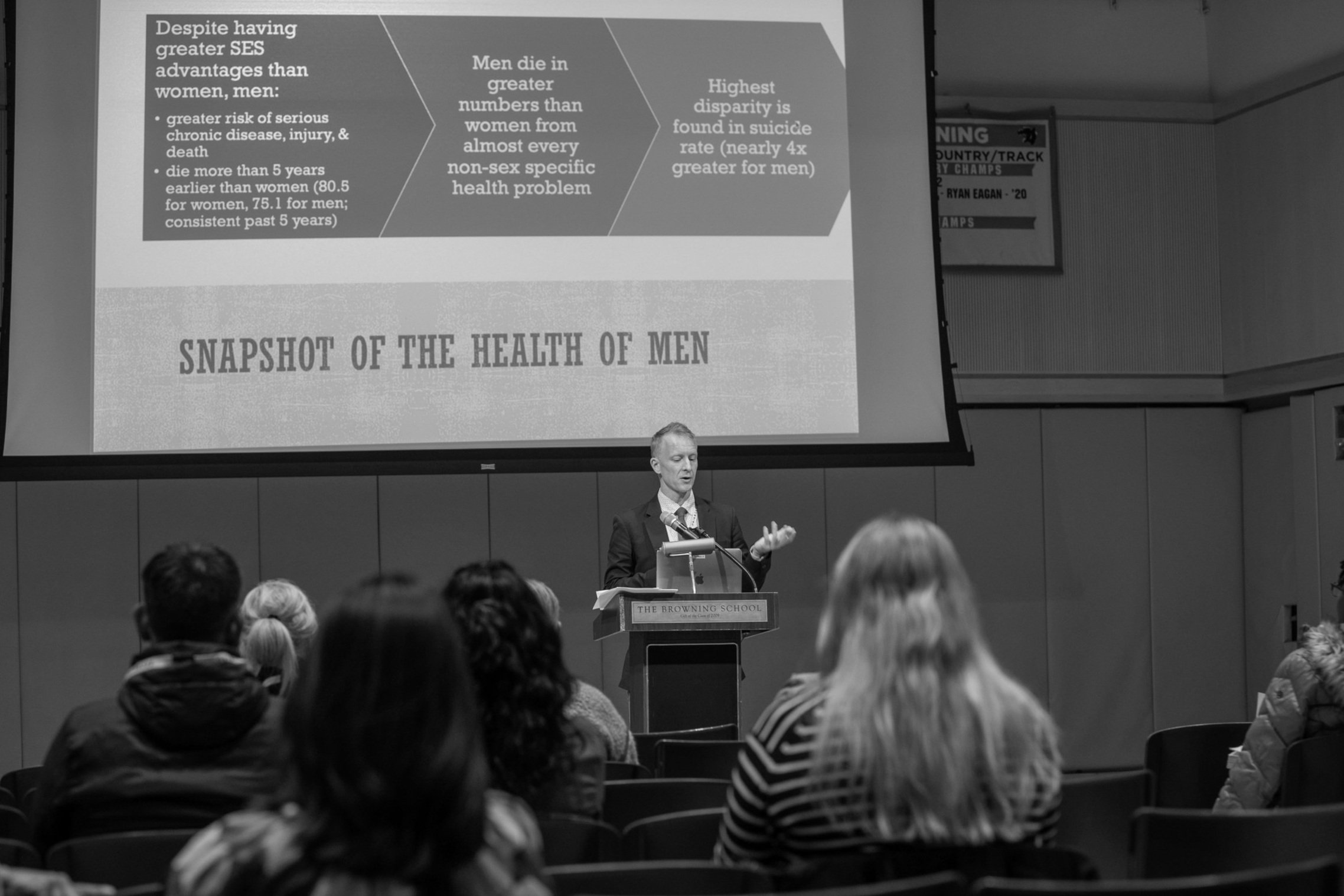The Power of a Strong Learning Community
We in education often refer to schools as “learning communities” because everyone involved in the school has the opportunity to grow with one another. At Browning, this effort takes on many forms—from “Tricky Texts” family reading groups, Parents Association presentations, to partnerships with organizations such as The Social Institute—and one of the most stirring aspects of our community is its enthusiasm for deeper learning.
This energy is perhaps most evident in Browning’s “Today’s Boys, Tomorrow’s Men” (TBTM) speaker series. Having just concluded its fourth season, the TBTM initiative brings educators and thought leaders from a variety of relevant disciplines—psychology, education, sociology, counseling, philosophy—to advance conversation and programming specific to Browning’s mission to produce courageous and compassionate men who live with purpose and honor the dignity of others. When we launched the series in 2019, we believed these discussions were particularly appropriate to the political and cultural moment at hand, as we saw momentum gathering for fresh examinations of the ways in which boys and men are socialized into particular constructions of maleness and manhood. The relevance of this conversation has deepened over the past four years, with (among other matters) the intensification of the online “manosphere,”the attention given to the work of Richard Reeves, some really powerful films, and increased scholarly exploration of the origins and practices of masculinity in boys and men.
“All of us gifted with the opportunity to know, love, and challenge boys have emerged with greater awareness of the influence of gender on boys’ development, connection, aspiration, and self-understanding. ”
Three times a year, Browning's TBTM discussions engage their audiences on matters of masculine identity, interpersonal relationships, ethical integrity, emotional well-being, and purposeful manhood. While on East 62nd Street, visiting scholars meet with boys throughout the school day, present to faculty and staff in the afternoon, and host a conversation with Browning families in the evening—and these full days have allowed our school to profit from the insight of academics from institutions such as Swarthmore and Stanford and UCLA, to analyze bestselling texts with the authors themselves, and to adapt programming (such as NYU’s Listening Project) to the developmental needs of Browning students. While the voices that have joined Browning have been varied, the overall effect of TBTM has been uniform: All of us gifted with the opportunity to know, love, and challenge boys have emerged with greater awareness of the influence of gender on boys’ development, connection, aspiration, and self-understanding.
Such was certainly the case last week, when we concluded our fourth season with a panel discussion (ably facilitated by TBTM coordinator Janet Lien) that featured Tom Batty, Executive Director of the International Boys’ School Coalition; Kim Husdon, Director of the Center for the Study of Boys at St. Christopher’s School in Richmond, VA; and Vance Wilson, the Managing Partner of Strategic School Leadership, former Head of St. Albans School in Washington, DC, and a current Browning Trustee. Among the many highlights of the wide-ranging discussion was the necessity of giving boys the opportunity to participate in something larger than themselves, the robust positive effects of in-person connection (with peers and mentors) for developing boys, the trickiness of identity formation during adolescence, and the power of storytelling to bring humor, motivation, love, and the sacred to learning spaces.
a panel of experienced boys’ educators discussing the topic, “Inspiring the Men of Tomorrow.”
Some have suggested that our era is one in which the relationship between experts and citizens in our democracy is groaning under the strain of pervasive distrust of so-called “elites,” widespread misinformation, and openness only to ideas which confirm previous biases. As Tom Nichols trenchantly observes, “Never have so many people had access to so much knowledge, and yet been so resistant to learning anything.” At Browning, however, the appetite for new learning remains hearty, and the appreciation for expert insight stands strong. These twin community orientations have given “Today’s Boys, Tomorrow’s Men” institutional prominence in a comparatively brief period of time, and will ensure that TBTM remains a distinctive and effective element of our culture and practice in 2023-24 and beyond.

